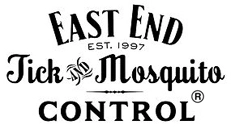The summer season is in full effect and Hampton residents and their pets are excited to spend more time outdoors! Visits to the beach are becoming a daily thing, days are getting longer and spent barbecuing by the pool, and these are all things we have been waiting for since last September. However, oftentimes we’re so excited to be outside, we forget about ticks and the tick-borne illnesses they bring. Both cats and dogs can be infected with Lyme disease and cats are especially vulnerable to tularemia, haemobartonellosis, and babesiosis. Dogs, similar to people, can get Ehrlichiosis, babesiosis, and Rocky Mountain Spotted Fever. They are also at risk of an odd tick disease called hepatozoonosis, which a dog can get after eating an infected tick.
As Long Island residents, we all know to check ourselves routinely, but are you taking the necessary steps to also protect your furry friends? Symptoms of tick-borne illness in animals can be difficult to recognize and many pet owners are unaware that their animal is suffering until it’s too late. We also want to prevent our pets from carrying ticks into our home and spreading to humans.
Ticks are unavoidable in some cases, especially when you’re spending a lot of time outdoors, but there are a few ways to prevent the pests from ruining your summer, and East End Tick & Mosquito Control® is here to share them with you. Ticks are most abundant in heavily wooded areas, so keeping your pets contained on your lawn and out of the woods is one of the easiest ways to protect them. We recommend using an invisible fence to help keep your pets in your yard and to keep unwanted animals away from your property. We also recommend researching plants and trees you plan to purchase for your yard/garden prior to doing so. Many plants attract deer, which are an essential part of the life cycle for ticks and the diseases they carry.
The summer season is made for spending time at the beach, but it’s important to remember that ticks are still a threat to our favorite places. Beach grass is full of ticks and we should always keep our dogs away from the dunes and areas with high grass. Remember to keep your pet’s fur cut short throughout the summer season as it will make it much easier to spot ticks.
Getting your yard sprayed every month throughout the summer season will help reduce the number of ticks on your property, but it’s important to wait at least 30 minutes after we spray before letting your pet into the treated area. Always remember that pets will still pick up ticks, even after we sprayed and spraying alone will NOT keep ticks off your pets. Applying products such as Frontline or Advantix to your animal’s fur will also help by killing any ticks that come in contact with them for a full 30 days. Tick collars also help prevent tick-borne diseases and provide protection for up to six months. Tick expert Brian Kelly suggests using these products often.
How To Check for and Remove Ticks:
Try to keep your pet’s fur short. This will make it easier to feel and spot ticks. Ticks will vary in size depending on how long they’ve been attracted to a person or animal. Always check your pet carefully for hidden ticks after they’ve been outside. Take your time when checking under their ears, under the tail, and anywhere the hair is thin and skin is exposed. Ticks can also be found in the mouths of animals, so don’t forget to check there as well. Get into the habit of checking your pet daily, and if you come across one, here are the steps to properly remove the tick:
- Use a pair of tweezers and grasp the tick very close to the animal’s skin.
- In a single motion, pull the tick upwards and away from the skin.
- Clean the skin with soap and warm water and check to make sure the head and legs of the tick are no longer in the skin.
- Save the tick and bring it to your vet in case your dog becomes ill.
Keep your pets and your family safe from ticks and call the trained experts at East End Tick & Mosquito Control® at the first sign of ticks. For homeowners living near Southampton, please call (631) 287-9700. If you live closer to East Hampton, please call (631) 324-9700. And if you reside near Southold, please call (631) 765-9700. You can always email us as well.


